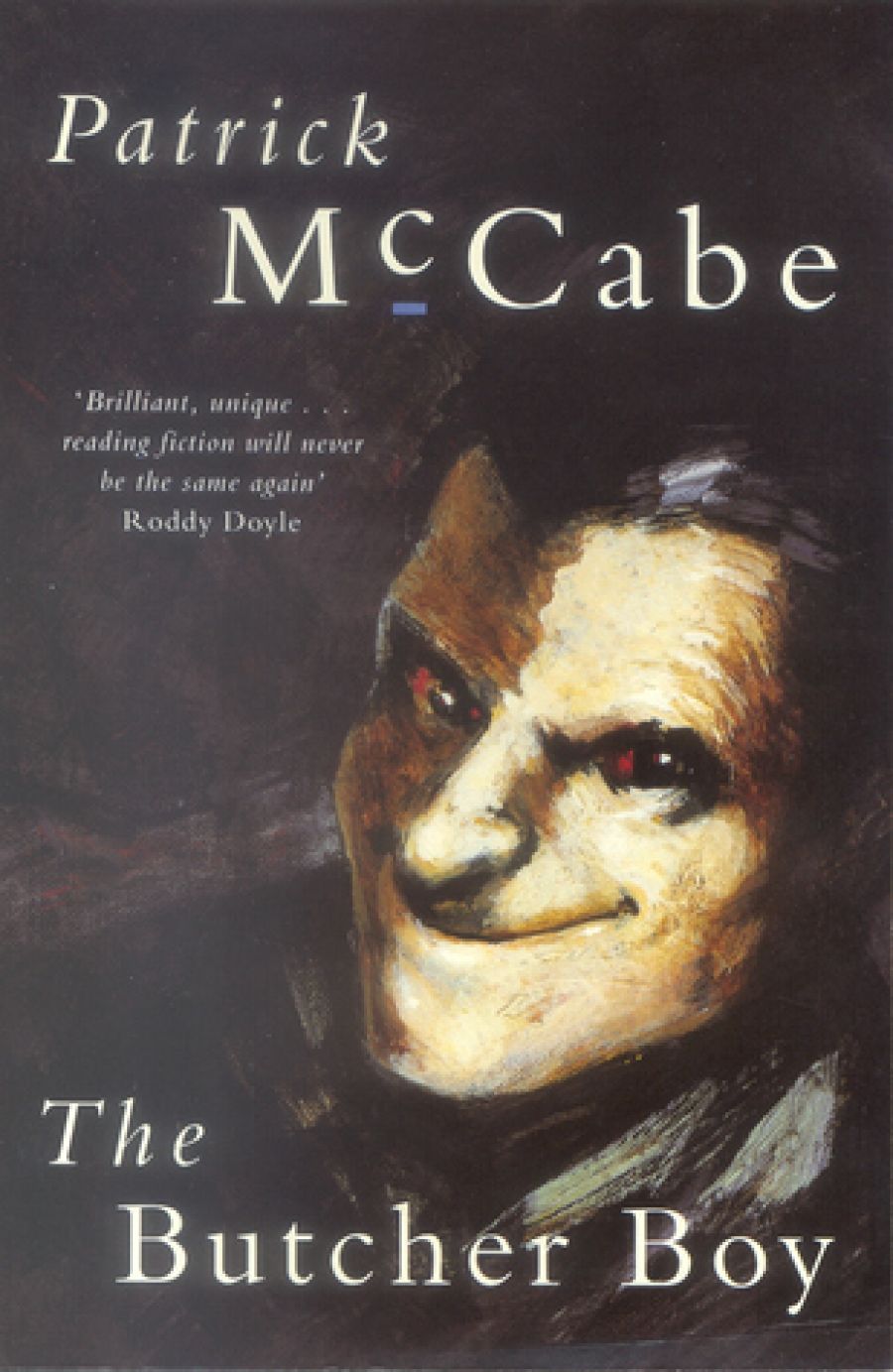
- Free Article: No
- Contents Category: Fiction
- Review Article: Yes
- Online Only: No
- Custom Highlight Text:
When, the opening pages of The Butcher Boy, it becomes clear that the narrator is an uneducated toughie whose sorry history is going to be the subject of the book, the reader’s danger flags are likely to be unfurled. To sustain such a voice without losing credibility is a tricky task. But the first chapter establishes that voice with exceptional skill, and this success continues through almost to the final scene, which curls back to the beginning, with the narrator an old man, remembering slowly, frighteningly, his tragic life.
- Book 1 Title: The Butcher Boy
- Book 1 Biblio: Picador, $32.95 hb
- Book 1 Readings Link: booktopia.kh4ffx.net/ZdbeV1
When your family shames you but you love them, you will fight like the devil for their reputation, but when that reputation falls down in tatters time and time again, there’s not much for a feisty kid to be proud about. So he acts tough and tries not to let the hoity-toity Mrs Nugent and her precious son, Philip, put either him or his family down. When he overhears Mrs Nugent going on about the Bradys (‘what else would you expect from a house where the father’s never in, lying about the pubs from morning to night, he’s no better than a pig’), he fixes on her as the enemy, and he embarks on a series of humiliations, confrontations, attacks, that leads eventually to his nemesis.
What he ‘done on Mrs Nugent’, is foreshadowed on the first page, but the event is not recounted until late in the book. By that time, we are well aware of why he done on Mrs Nugent, and it is Patrick McCabe’s strength as a writer that makes us feel the awful inevitability of Francie’s act. There are moments at which things could have turned, if only there had been someone around to still the boy’s flaming anger and guilt. As he kicks out, he kicks down the few supports he has; his mother’s dreadful death comes when he has run off to Dublin to escape yet another humiliating episode; he grows away from his best friend, Joe, as he falls behind at school.
And everywhere is the irresponsibility of adults in an insular community. As respectability turns its back on the unacceptable, it fails to see that its back makes an enticing target for the weak and hurt.
That Francie should be both horrifying and heartrendingly pathetic is testament to the force of McCabe’s writing. The self-told story of Francie the butcher boy is a venomous cry of anguish, a disturbing mixture of humour and horror. He’s an unlovely boy, as he tells it, and he’s not out for sympathy. In the middle of his own lonely heartbreak, he can still give credit, in his cheeky way, to the few adults who seem to be a little less unkind to him, even if their motives turn out to be impure. And his inventive descriptions of life and people make his account entertaining:
After that they put me serving mass. What a laugh that was. Me and Father Sullivan up before the birds getting into all these starchy togs inside in the sacristy, they’d freeze the goo lies off you. Black as pitch outside and not a soul stirring. I’d carry the cruets and stuff and off we’d go me and Father Sullivan like two big whispers moving along the corridor to the chapel rustle rustle. Domine, exaudi orationem meam, he’d say with the hands outspread. I was supposed to say Et clamor meus ad te veniat. Et fucky wucky ticky tocky that was what I said instead.
What would an Irish novel be without a bit of irreverence? This one is perhaps unusual in that it doesn’t indulge in the irreverence for the sake of slapstick humour. There is a bite behind the grin.
There is a small amount of difficulty when, at the end, the story catches up with Francie as an old man, a swift device to counter the improbability of such a story ever being told by its perpetrator. The decision to have Francie recall from a distance was perhaps the only one possible given the violent nature of some of the events, but it makes the final two pages less satisfactory than almost all the rest of the book. A small disappointment in such a bold and arresting story.


Comments powered by CComment